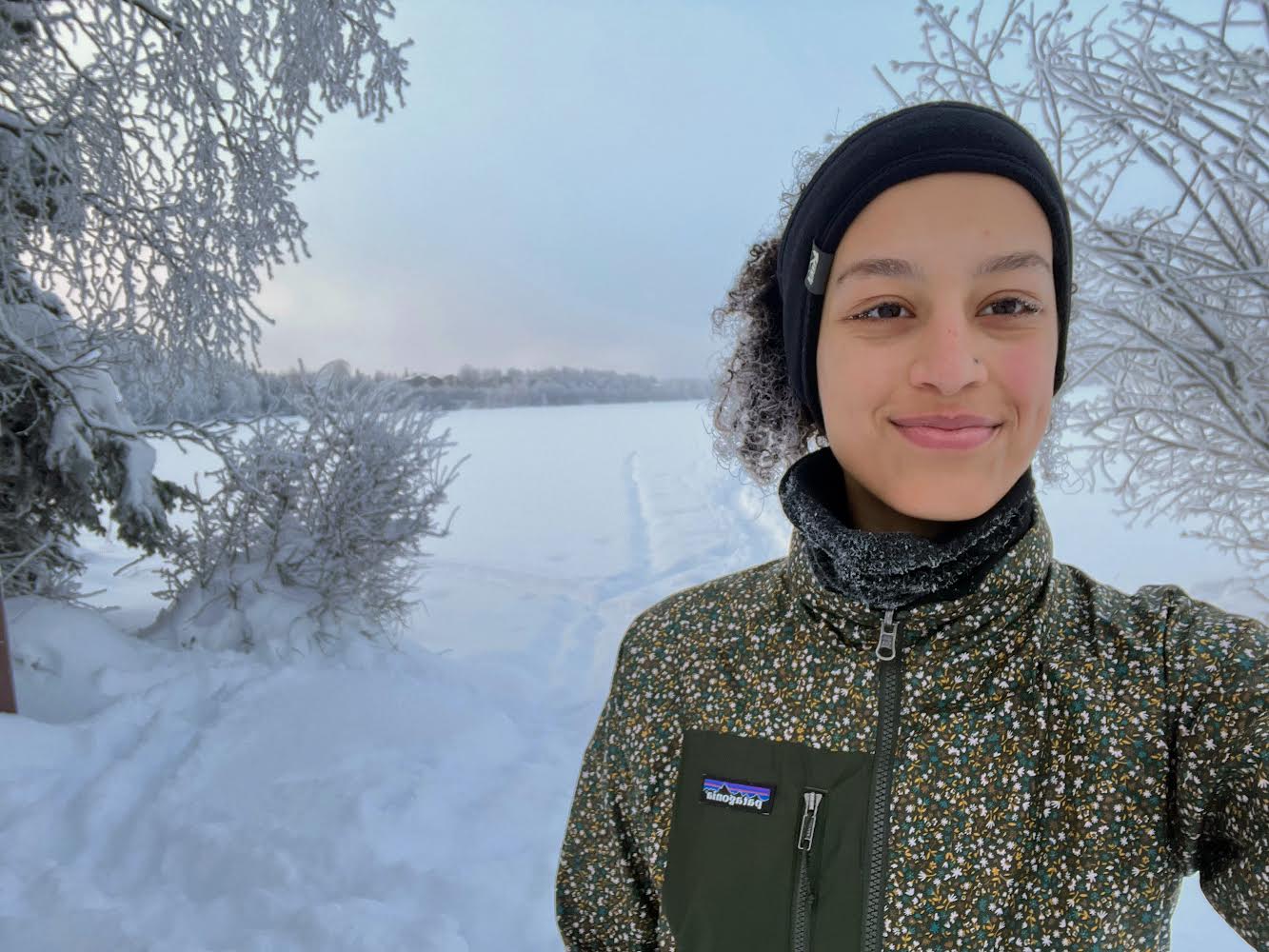
Drinks with lawyers–Lydia’s quarter-life crisis
By Dawnell Smith
Lydia Heye joined Trustees as a legal fellow in September 2022 after graduating from law school in Los Angeles. She took and passed the Alaska bar soon after.

She quickly dug into Trustees’ Arctic work and seamlessly started lawyering by doing everything from research and writing, interviewing clients for declarations and reviewing litigation documents to talking to reporters, joining internal committees, participating in coalition meetings, and bringing an honest, pointed, upbeat perspective to every conversation.
You might call Lydia a people person. She engages folks with earnest confidence and warmth. She’s keen and forthright with her thoughts and observations and trusts that others can handle it. Water doesn’t slide off her back as much as slip into the crevasses of her curiosity and sense of purpose to nourish possibility.
Before joining Trustees, Lydia had an offer to work at a big law firm in Portland, the place she calls home, and everyone in her life told her to take it. She chose to come to Alaska instead.
“I turned down a comfortable job to do public interest environmental law work in Alaska and I don’t regret it,” she said. “I feel like I’m doing cool work and working with cool people, and I can go to bed at night thinking I made the world a better place.”
Her family isn’t surprised.
“Lydia was always about sticking up for the underdog and stood up for people when they were wronged,” said her brother Nehemiah Heye. “She was also very studious and wanted to know as much information on as many topics as possible. She has always had a strong heart for the planet and social justice and that seems to tie in perfectly with what she does now.”
All the forks in the road
So, what’s this about a quarter-life crisis?
Lydia has a clear understanding of what she wants to do—advance racial justice—but she’s still working out the best way to do it. She’s 25 years old, and she knows she has options. She can take various paths through lawyering, or she could do other kinds of advocacy, pursue a role in academia, or take another approach entirely.
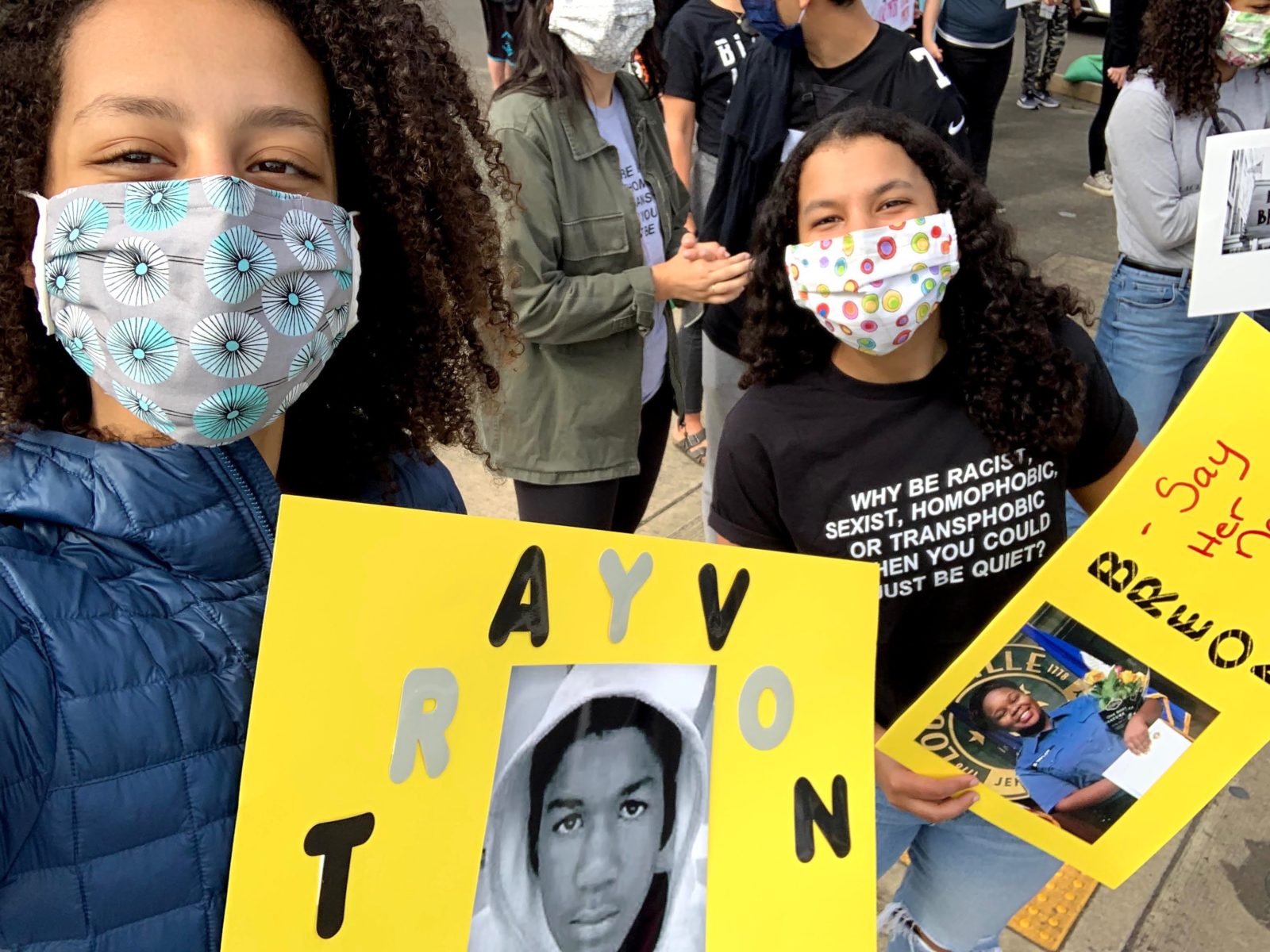
Her mom Kimberly Heye describes Lydia as a kid and adult who “seeks out justice for those who need to be seen.” The stories and experience of people and the mission of justice and fairness are baked into Lydia’s being.
“It is a perfect alignment to her personality as a child that she would care so deeply about justice and the environment,” said her mom. “Lydia has always been willing to stand alone, even when others would not join in her opinion because she knew she believed in what she stood for. Lydia is loyal and a critical thinker and, to be a strong and valuable attorney, you must be both.”
Lydia’s way of being fits lawyering, for sure, but does lawyering fit the fullness of what she wants to do, how she wants to be? Maybe it’s too early to know those answers, but for Lydia it’s important to ask those questions.
It’s not the first time she has confronted the intersection of her known sense of purpose and the need to decide a path or to shift direction.
When at the end of her senior year in high school, one of Lydia’s teachers asked students, “What’s next?” A friend of hers talked about wanting to be a lawyer, and the teacher noted how hard that would be. Lydia clearly remembers feeling bad for her friend.
Lydia chose pre-med instead. She laughs about it now, but it made sense at the time. Her family in Ethiopia runs a small hospital, and she had teeth issues growing up and thought she could do good work through dentistry. Plus, she figured that practicing medicine would give her the flexibility to travel to or even move back to Ethiopia.
Two things changed her mind: Chemistry 101 and an intro to biology.
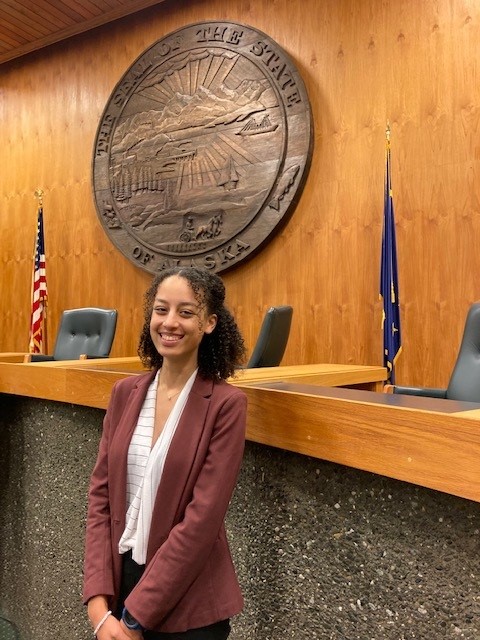
“I could not imagine staying in those classes, let alone that major,” she said, shaking her head with a look of doom even now. She changed course that first semester. “When my advisor asked what classes I liked in high school, I mentioned government, so I took intro to U.S. government and never looked back. I ended up majoring in political science.”
What am I going to do with this degree?
Lydia didn’t have a career in mind when in those early years of college, but she eventually had to grapple with what to do next. Today she calls this her pre-quarter-life crisis: What am I going to do with this degree?
A professor mentioned law school, but no one in her family had a law background and she really didn’t know any lawyers. Still, she decided to study for and take the LSAT anyway and apply to law schools. She got into all of them, but chose UCLA because of its professors and courses in critical race studies.
“I knew I wanted a career that advances racial justice,” she said. “I had no clue about what kind of law I wanted to do, probably like a lot of other students, so I took classes and tried to learn more by going to lunch events about different issues where there was also free food.”
One of these events focused on Indigenous land issues. She had no idea at the time that the folks doing the presentation were environmental lawyers. Until then, she assumed environmental attorneys were only focused on conserving landscapes, not advocating for people or sacred places or racial equity.
That was one of the last lunch events she got to go to before COVID shut down campus, but it had a profound impact on her. She reached out to the school’s environmental law professors, who were equally as excited about her interest in their area of law. They told her the field needs more Black lawyers and that more environmental law firms were doing environmental justice work.
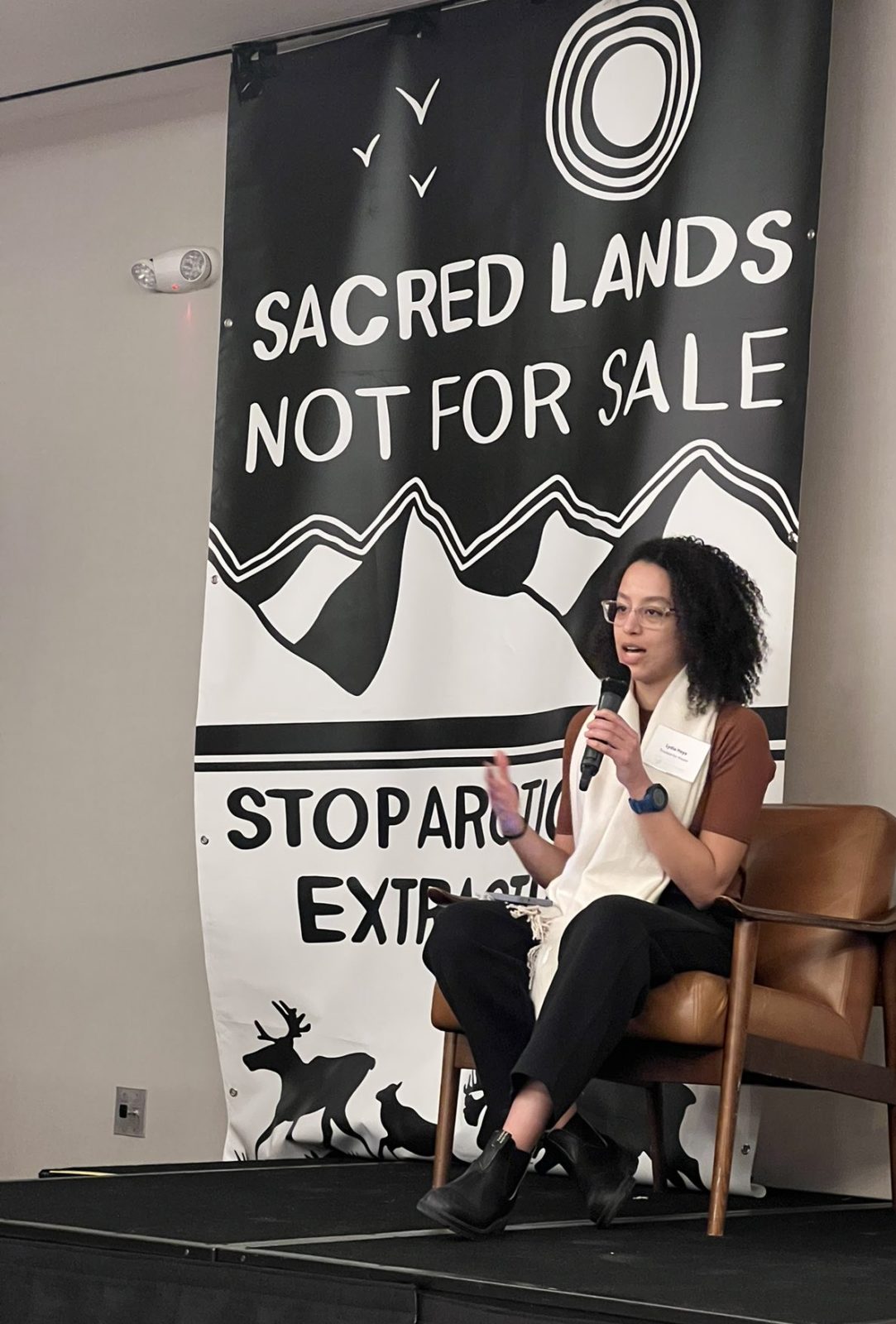
That summer, when a gig with a big law firm in Portland fell through because of the pandemic, she joined a research program that focused on using international criminal law to protect the environment, with a specific focus on deforestation in Brazil. The connection between people and place and how the law played into this relationship interested her and shaped her path.
She continues that interest with Trustees, working in areas of litigation where industrial oil and gas and mining projects could and do have enormous impacts on local communities and the lives and ways of life of people.
Justice and the land
Lydia’s mom said that Lydia “has always sought perfection for the world. She has always believed that the world could be better if everyone tried a little harder.”
So, Lydia tries a little harder. She came to Alaska a month before starting her fellowship to begin building connections. Her family and her partner are in Portland, and however much you can love the vastness and beauty and diversity of Alaska, it can pull you from those you love. It can make you feel isolated.
Lydia felt that untethering, so she worked at building her community here. She found a church that feels right, and she volunteers there weekly. She put herself into social spaces where she met people she quickly called friends. She joined others who wanted to ski, hike, bike, and connect with the natural world. She found the Black community she wants and needs in her life .
For all the studiousness and focus and isolated thinking often required of her legal work, Lydia thrives around people. At a staff meeting where the ice-breaker question was “what job would you do if you weren’t doing the one you do now,” she answered “barista”— then later, in a side conversation, changed it to “retail work” because she had previously had a retail job she loved because it meant connecting with people.
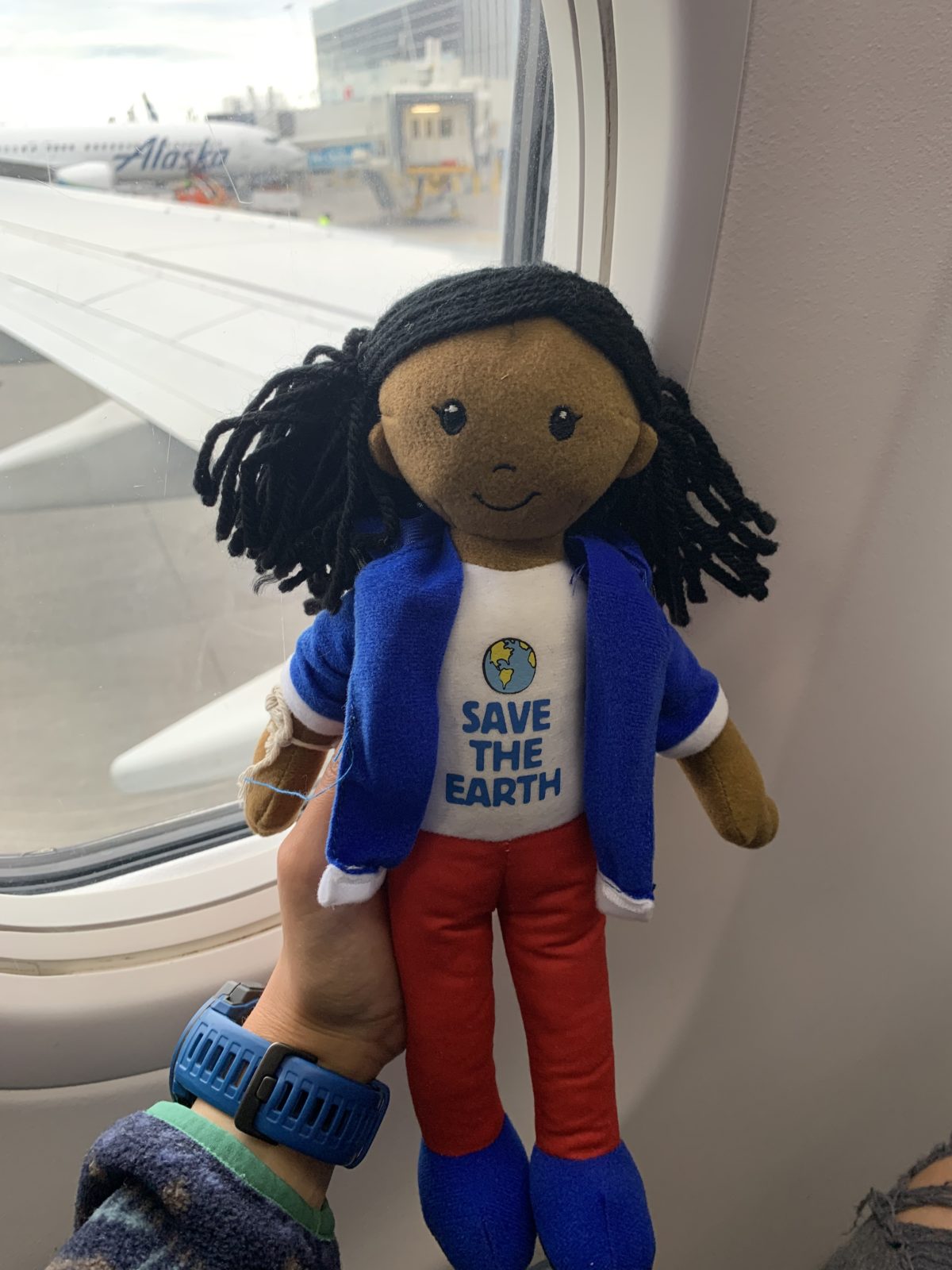
“I think when people think about environmental law, they think of tree-huggers who only care about the land,” she said, “but we care about people. We care about communities. People are central to our work, and that means saving the planet for future generations and protecting places for people and their cultures.”
Helping to bring the story of people out—the real impacts on their lives and health and ways of life—is what matters for Lydia. In her work with Trustees, she loves writing declarations for clients, “and getting to talk to them directly and talk about the direct impacts of projects like Willow and help tell those stories in the legal frame and getting to convey that to a judge.”
It’s not uncommon for public interest attorneys to view themselves as heroes, she said “but you’re not the hero. Your clients are. The people experiencing the harm are. You’re just giving them a mouthpiece within the law. You’re not there to get in your two cents, but to get the microphone to them and let them speak in the ways you can within the legal system.”
The crisis of what’s next
There’s a line Lydia heard from mentors and others in law school that attempted to address the inherent problems with a legal system that has upheld racism and oppression: “You need to use the master’s tools to tear down the house.”
Lydia’s quarter-life crisis resides within this skewed view of justice ably countered by Audrey Lorde in her speech, “The Master’s Tools Will Never Dismantle the Master’s House.”
“The further I get into the law, I wonder, is this what I want to do? The law is limited. It can be a tool of suppression. Do I work inside it or outside it? This fellowship, my past experience, reveals the importance of this work and also the limitations.”
There is more than one way to tear down racism and mend the wrongs done to people, and of making the world safer, healthier, and fairer for everyone.
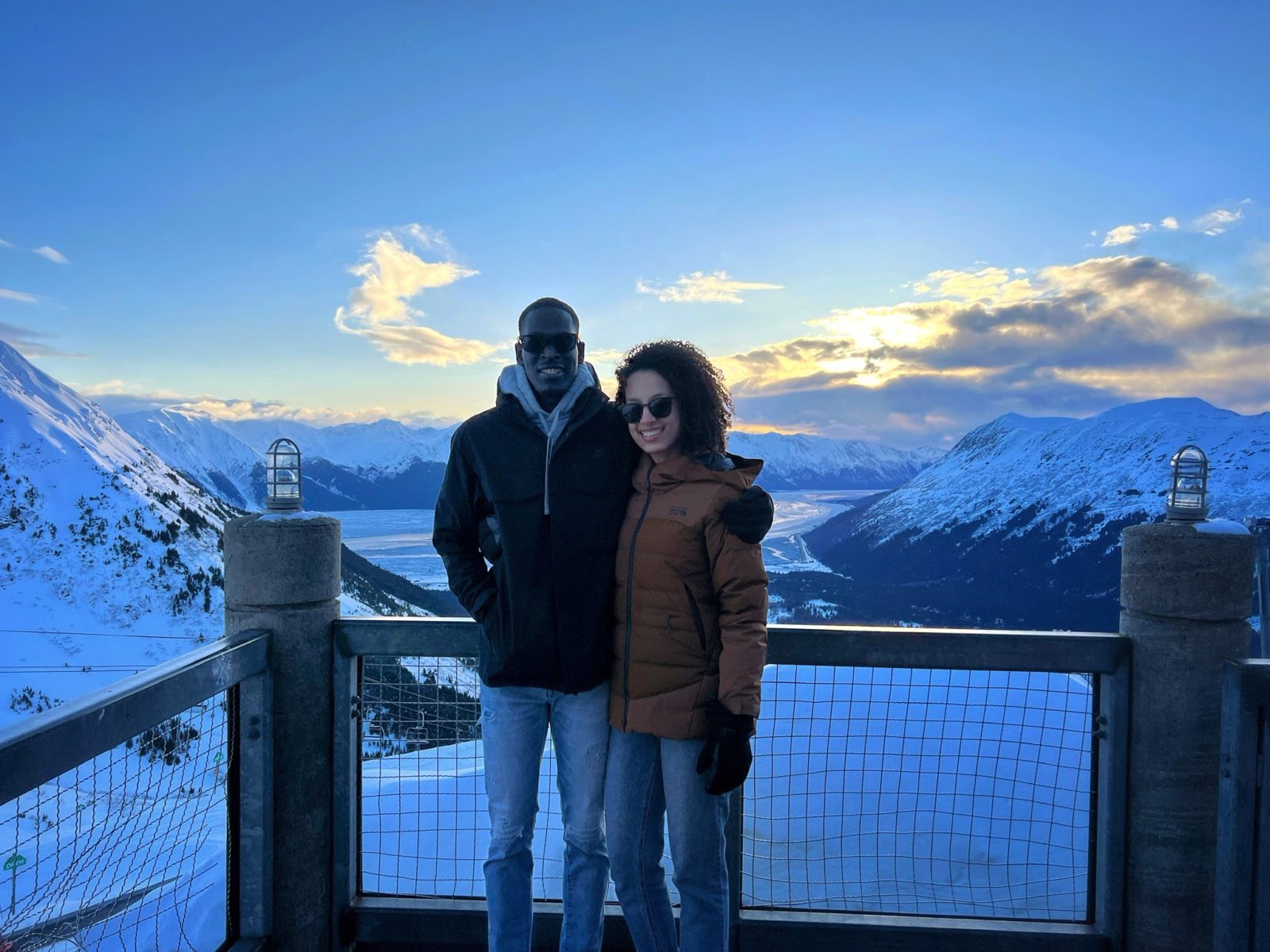
What Lydia knows for sure now is that her work so far has given her the tools for what’s next. “I’ve got the right experience now,” she said. “Whatever I do, I’ll be ready for it. I’ve been able to gain critical thinking skills, creativity, the ability to work through hard conversations and communicate legal issues.”
It might seem natural for her to head back to Portland and the Pacific Northwest, but she doesn’t know for sure. She may do lawyering with another nonprofit or firm, or go back to school, or even look beyond the notion that one’s career is the only way to undertake one’s purpose.
She has 11 more months in Alaska to figure out what she wants to do next, and there’s a lot to see and do and experience in the meantime.
Alaska is home for now
“I came to Alaska with a preconceived notion, and it turns out it’s a diverse place,” she said. “A lot of people from the world are drawn here for different reasons. My partner is from South Sudan, and we were running around Anchorage one day when we saw a van for a Sudanese daycare program. We were both surprised. Alaska is like that. It’s huge and also small. You run into people. I was in Hatcher Pass with my partner when I heard a voice way in the distance yelling, ‘Barbara, can you grab Hattie,’ and it was Lang from the office.”
Maybe Alaska is a good place for figuring things out. The diversity of people and intimacy of communities in Alaska—a state known for its remoteness and size—can offer perspective on how people hold relationships with the places they live.
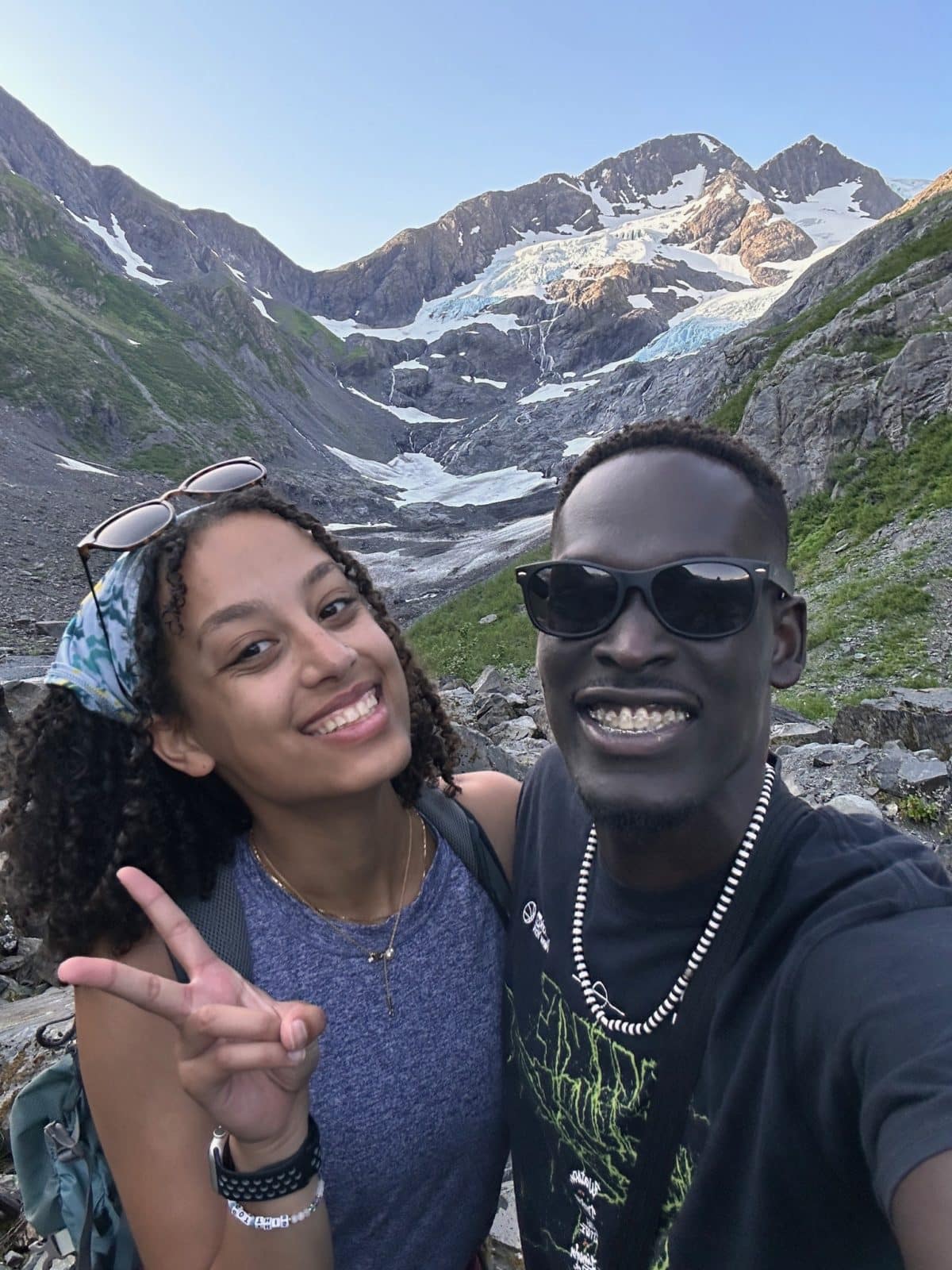
Besides, there are so many more places in Alaska that Lydia wants to go to and experience, and so many more people she wants to learn from and know.
“Lydia is most at peace when she is out in nature by either skiing down a mountain, hiking a new trail, finding a new bird or flower, or admiring a beautiful sunset,” said her mom. “Her soul sings for justice for the natural world and the people who inhabit these spaces… She has changed our family through her advocacy, and we cannot unlearn all she has taught us.”
It’s true that songs stay in the hearts and minds of people long after the singer has gone. So, too, do the places people come to know and call home and strive to protect.
As a lawyer, it’s easy to feel frustrated and pessimistic with court rulings like the one allowing winter construction on the Willow project despite the ongoing lawsuit, said Lydia, but “we can’t afford that. Our clients can’t afford that. The planet can’t afford that. Staying hopeful is what we owe each other.”
This is the third in a series of profiles based on interviews with Trustees’ attorneys over drinks, this time over an IPA sampling at Midnight Sun Brewing Company in Anchorage.
More in the drinks with lawyers series:


